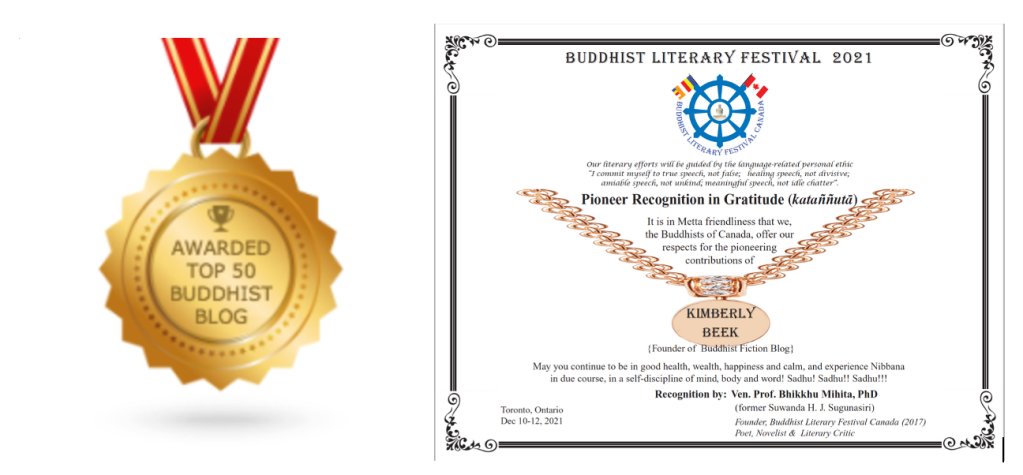I recently returned from the 2018 American Academy of Religion Conference, held this year in Denver, Colorado, where I indulged in the reverie of scholarly friendships and meet and greets and conference paper panels and receptions in the mile high city. My agenda revolved around attending the Buddhism in the West Unit sessions, which made a big impact on me this year. In particular, the co-sponsored Buddhism in the West Unit and Buddhist Critical-Constructive Reflection Unit sessional theme “From Rape Texts to Bro Buddhism: Critical Canonical and Contemporary Perspectives on the Sexual Abuse Scandals in Western Buddhism” made me aware of the role and strength of identity politics in the formation of Buddhist identities in the West.

I took many notes from the AAR sessions I attended and when I got home, I began to research. As I went down the internet rabbit-hole in an attempt to understand the contemporary concept of meaningful consent, I came across an article by staff writer Barbara who wrote the article “Meaningful Consent and the Meaning of Consent in Game of Thrones” (21 April 2016) for the Fandomentals website (https://www.thefandomentals.com/meaningful-consent-and-the-meaning-of-consent-in-game-of-thrones/). While discussing meaningful consent, cultural contexts and fiction, Barbara writes:
Just as I believe reading good fiction makes us better at empathy (and not just me, a bunch of scientists think so too), I also believe it can make it easier for us to understand a different cultural setting, a different set of values. It doesn’t mean we have to agree or accept those values, but learning to understand where another person comes from is, I think, the necessary basis for any kind of intercultural or interreligious dialogue.
I wholeheartedly agree with this statement. But then I began to think about cultural appropriation. There is another side to this sentiment about intercultural or interreligious dialogue in fiction, a side that critiques.
Recently many authors whose intent it was to understand and/or give voice to minority groups have been accused of cultural appropriation. According to Katherine Cowdrey in her 2017 article “Authors fear accusations of cultural appropriation, forum hears“, authors of English language fiction everywhere are being cautious, or not publishing works at all, for fear of being accused of cultural appropriation, especially after novels like Kathryn Stockett’s The Help (2009), which spent 100 weeks on The New York Times bestseller list, was knocked off its pedestal with accusations of cultural appropriation by very respected minority groups. So what do we make of non-Asian writers, and/or non-Buddhist writers, who write at the intersection of Buddhism and fiction, many of whom write Asian protagonists or minority secondary characters? Even though I am sure their intentions are only good, how do authors voice experiences of the other without offending? Should they even try? How do we as readers know when fiction has crossed the line into cultural appropriation? Is Buddhist fiction inherently misrepresentation if it is written by a Caucasian non-Buddhist? Or does it create a space for and present an opportunity for dialogue about cultural appropriation and cultural sharing?
I don’t have any clear answers at this time. If you do, I’d really like to hear from you.



The Buddha saw through the transitory nature of mind generated formations such as identity politics, that invest so much angst in generating and defending positions, looking for reasons to find fault and often attacking others. Regarding cultural appropriation, should a female never write a male character, or the reverse? How can a woman really know what it is to live as a man or a man know what it is to live as a woman? The same to peoples of different places, cultures, races and times. The nature of the creative endeavour is at times to put oneself in a situation where one is not familiar, to step outside oneself.
Should we publicly scorn non-Buddhist authors that used Buddhist characters or write about Buddhist themes? Can only Buddhists write about Buddhists? Can only Buddhists of a certain tradition or background be allowed to write characters of that tradition or background? Are no others to be allowed? Once one starts down such a road where are the boundaries?
I view such debates as mostly more mind trash. Yes, at the extremes there are points to made. However, serious artists are now self-censoring their creativity as they fear the thought police are watching. One could say that the sessions discussed are an appropriation of the Buddha’s teaching for self-centred political gains and ego satisfaction hidden within the guise of social justice.
The Buddha came from a wealthy family but never to my knowledge apologized for his “privilege”. Instead, he observed the mind closely and avoided political controversy whenever possible. He taught self-cultivation and for his followers to assist others to live with less suffering regardless of gender, race or position. I hope the Buddhist Fiction blog continues to review Buddhist books by both non-Buddhist and Buddhist authors; of Asian characters written by non-Asians; of non-Asian characters written by Asians. May the quality of the books for inclusion in this blog not be judged by the concerns raised in those sessions.
Thank-you David for your perspective on cultural appropriation and Buddhist fiction that highlights the current challenges of balancing cultural sensitivity with the imaginative license. Fiction is a perfect opportunity to imagine oneself in the lifeway of another and I am saddened that the very practice is being interrogated to the point of writers not writing. Often we can look to literature for these kinds of cultural changes woven into the discourse of some of our greatest stories. I hope Buddhist fiction does just that. Generally, the criteria for inclusion of novels and/or short stories on the blog is that they represent some aspect or form of Buddhism to readers of English language genre fiction. We will continue to consider and review works of Buddhist fiction in this blog.